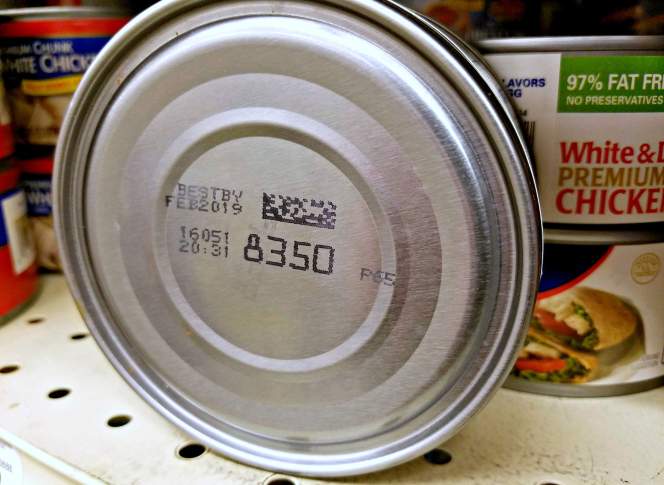How To Make Sure Food Pantry Giving Is More Effective
Community groups often host food drives at various points during the year to fill local pantry shelves. Donors can enhance the value of their gifts by ensuring the food is safe, nutritious and of high quality.
November 30, 2016

Canned meat with quality date

Community groups often host food drives at various points during the year to fill local pantry shelves. Donors can enhance the value of their gifts by ensuring the food is safe, nutritious and of high quality. Two particularly important ways to do this are to check dates on packages of donations, and to buy nutritious, healthy food that would be welcomed on anyone’s holiday table.
To ensure that food is of the highest quality, the date on the packages being donated should be checked. There are several different types of dates on food packages, and each means something different.
Quality or pack dates are often designated on packages by the words “Better if used by” and a date. These notices appear on packaged mixes, cold cereals, peanut butter and, increasingly, on canned fruits and vegetables. After the quality date passes, the food will begin to lose its flavor and may even develop an off flavor. Foods should be donated to pantries well within the quality dates marked on the packages.
Expiration dates include information such as “Expires 2/15/16” or “Do not use after 7/9/16.” These dates appear on vitamins, yeast, baking powder and cake mixes. Any foods that have passed their expiration dates should not be donated.
Pull dates in dictate the time by when a food should be sold, for example: “Sell by May 16.” These dates are on perishable, refrigerated foods such as milk, yogurt, cottage cheese, cream, eggs, lunch meat and packaged salad mixes. Food drives usually do not accept perishable foods, with the exception of garden produce. However, anyone wanting to donate perishable foods should choose items well within their pull date.
In addition to dates, the donor should make sure the packaging is intact and not damaged. Food in packaging that is torn, leaky or otherwise damaged should not be donated. And for safety reasons, home-canned or home-prepared foods should never be donated.
A good rule of thumb is that if donors would not feed the food to their own families, then they should not donate it to a pantry.
Donating healthy food is another way to make the gifts more valuable. Sugary cereals, salty noodle mixes and fruit-flavored beverages are good to avoid. They might be easy to donate, but difficult for families to include in nutritious meals. Instead, foods that have a stable shelf life, are full of nutrients and easy to prepare are the best options for donating.
Good examples of foods to consider include:
- Canned vegetables, especially those without added salt.
- Fruits canned in juice, unsweetened applesauce, 100-percent fruit juice and dried fruit such as raisins or craisins.
- Canned meats and fish, such as chicken, ham, beef, tuna and salmon — though not meat canned at home.
- Peanuts and peanut butter.
- Whole grain, low-sugar cereals such as plain instant oatmeal, whole grain Os, and bran flakes.
- Whole grain or enriched pasta and instant rice (brown or enriched). Boxed noodle and rice dishes can be an easy starting point for a one-dish meal.
- Whole grain crackers (especially reduced-sodium) and popcorn.
- Spaghetti sauce, salsa and canned beans, including baked beans.
- Reduced-sodium broth and soups.
- Low-fat salad dressings or spreads, and condiments such as ketchup or mustard.
- Baby food such as jars of meat and/or vegetables or baby food cereal that is well within the date marked on the container, especially well within the date marked on the containers.
Donations of safe, high quality foods go a long way in helping people ensure they can feed their families good, nutritious meals. The University of Wisconsin-Extension Safe and Healthy Food Pantries Project has more information about making appropriate selections.
Another option to support food pantries is to donate money. Pantries often can get more for their dollars, address shortages and needs, and focus on high quality products with some extra financial assistance. Monetary donations help food pantries offer the widest possible array of products to the individuals that they serve.
Barbara Ingham is a food science specialist with the University of Wisconsin-Extension. Amber Canto is state coordinator of FoodWIse, University of Wisconsin-Extension’s nutrition education program.
 Passport
Passport











Follow Us